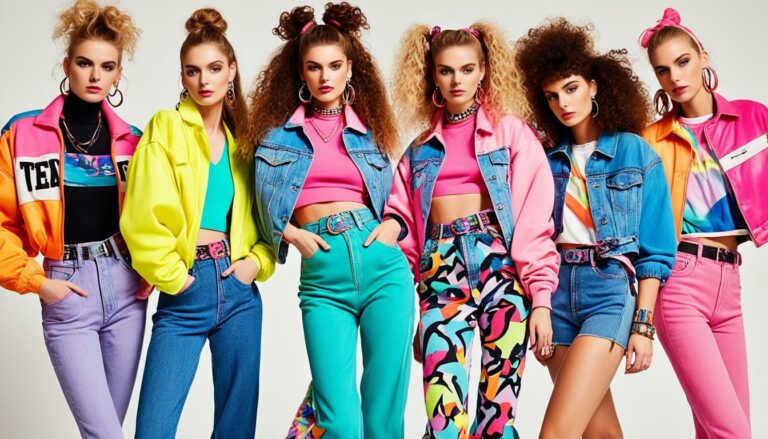Why is Teenage Dirtbag Censored: Unveiling the Controversy
Ever wondered why some versions of the song “Teenage Dirtbag” are censored? teenage It’s a head-scratcher, right? The answer lies in the controversial lyrics that have stirred up quite a fuss. We’re diving deep into this hot topic to uncover why certain platforms or radio stations opt for the edited version while others embrace it unfiltered.
The censorship of “Teenage Dirtbag” sheds light on the ongoing debate about artistic expression versus societal norms. Join us as we unravel the reasons behind this contrasting treatment and explore how it reflects broader attitudes towards music censorship. Get ready to delve into this intriguing subject and gain insight into why “Teenage Dirtbag” has sparked such divided reactions.
Key Takeaways
- Understanding the origins of “Teenage Dirtbag” provides insight into the song’s context and the reasons behind its censorship.
- Recognizing the impact of censorship on music helps to appreciate the complexities of balancing artistic expression and societal norms.
- The controversy surrounding the lyrics of “Teenage Dirtbag” sheds light on the challenges artists face in navigating sensitive topics.
- Exploring the influence of American gun culture on the song underscores the interconnectedness of music and social issues.
- The censorship of specific words in the song highlights the scrutiny placed on language and its potential effects on audiences.
- Despite censorship, the commercial success of “Teenage Dirtbag” emphasizes the resilience of music in reaching diverse audiences.
Origins of Teenage Dirtbag
Song Creation
“Teenage Dirtbag” was written by Brendan B. Brown and released in 2000. The song was inspired by personal experiences, reflecting the struggles and emotions of adolescence. It captures the essence of teenage angst, longing, and the challenges faced during this formative period.
The lyrics delve into themes such as unrequited love, social alienation, and the desire to belong. For example, when Brendan sings “Cause I’m just a teenage dirtbag baby,” he encapsulates the feeling of being misunderstood or undervalued as a teenager.
Wheatus’ creation of this iconic song has resonated with countless individuals who have experienced similar feelings growing up. Its raw emotion and relatable narrative have made it a timeless anthem for teenagers navigating through life’s complexities.
Wheatus Background
Wheatus is an American rock band that formed in 1995, known for their distinctive alternative rock sound. “Teenage Dirtbag” remains their most popular song to date, showcasing their ability to capture the essence of adolescent struggle through music.
The band’s unique style has garnered them a dedicated fanbase drawn to their authentic portrayal of youthful tribulations. By infusing personal experiences into their music, Wheatus has established themselves as influential figures in alternative rock while also connecting deeply with listeners on an emotional level.
Their ability to articulate the universal challenges faced during adolescence has solidified “Teenage Dirtbag” as not only a chart-topping hit but also an enduring emblem of teenage identity and resilience.
Cultural Context
The cultural significance of “Teenage Dirtbag” lies in its portrayal of teenage identity within broader society. The song represents more than just individual experiences; it encapsulates collective struggles shared by many adolescents worldwide.
By addressing themes like unrequited love and social alienation, “Teenage Dirtbag” reflects the common challenges encountered during youth. This resonance across generations underscores its enduring relevance as it continues to strike a chord with teenagers today.
Moreover, its depiction of yearning for acceptance speaks volumes about societal norms and expectations placed upon young individuals—a sentiment that remains pertinent regardless of time or era.
Understanding Censorship
Censorship Defined
Censorship, in essence, involves the suppression or restriction of certain content from being freely accessed or distributed. This can encompass a wide range of materials, including books, movies, music, and online content. The reasons for censorship may vary widely; however, it often revolves around shielding individuals from explicit or sensitive material that could be deemed inappropriate or harmful to their well-being. For instance, governments might censor political speech to maintain control over their citizens’ access to information.
Censorship has been implemented throughout history for various purposes such as maintaining social order and protecting public morality. It’s not limited to any specific medium but rather extends across different forms of expression.
Impact on Music
The song “Teenage Dirtbag” by Wheatus sparked discussions on censorship in music due to its controversial lyrics and themes. Its release prompted conversations about the boundaries of artistic expression within the music industry and led to heightened awareness regarding limitations imposed on musicians when addressing sensitive topics through their work.
This case also influenced how other musicians approached similar themes in their songs. Some artists became more cautious about broaching contentious subjects while others used the controversy surrounding “Teenage Dirtbag” as a catalyst for pushing boundaries further.
Lyrics Controversy
Sensitive Themes
The song “Teenage Dirtbag” by Wheatus addresses teenage alienation and unrequited love. It delves into the struggles of adolescence, portraying the feelings of being an outsider or not fitting in. The lyrics also contain references to smoking and rebellion, reflecting the challenges faced by teenagers as they navigate peer pressure and societal expectations. The song touches on societal pressures and stereotypes, shedding light on the complexities of growing up in a world filled with judgment and preconceived notions.
The portrayal of these sensitive themes in “Teenage Dirtbag” has sparked discussions about its appropriateness for younger audiences. Some argue that it provides a raw and authentic depiction of teenage experiences, allowing listeners to relate to their own emotions. Others express concerns about impressionable individuals being influenced by the rebellious undertones present in the song’s narrative.
Public Reaction
Following its release, “Teenage Dirtbag” garnered mixed responses from audiences around the world. Many praised its raw honesty, resonating with its candid exploration of adolescent struggles. The relatable nature of the lyrics struck a chord with listeners who found solace in knowing that they were not alone in their experiences.
Conversely, some individuals criticized its content for promoting what they perceived as negative behaviors among teenagers. This led to debates within both music circles and broader society about whether such themes should be openly discussed or censored from public consumption.
American Gun Culture Influence
Lyric Alterations
The song “Teenage Dirtbag” underwent changes to comply with censorship regulations for radio airplay and commercial release. Certain lines were modified to make them more palatable to a wider audience. For instance, explicit language or references to sensitive topics like violence or substance abuse may have been altered.
This alteration of the lyrics reflects the influence of American gun culture on media content. Given the sensitive nature of gun-related themes in music, especiallyLyric alterations can be necessary to adhere to regulatory guidelines and avoid controversy.
Media Environment
The song faced scrutiny from media watchdogs and parental groups due to its references that could potentially glamorize or normalize certain behaviors associated with American gun culture. This led to debates on freedom of expression versus protecting young audiences from potentially harmful influences. The extensive coverage in music publications and news outlets further fueled these discussions, bringing attention not only to the specific song but also shedding light on broader issues within popular culture.
In this context, “Teenage Dirtbag” serves as an example of how media content can spark conversations about societal norms and values related to gun representation in entertainment. The controversies surrounding the song’s lyrical content reflect a larger dialogue about responsible portrayal of sensitive subjects in art forms intended for younger audiences.
The Censored Words
Original vs Edited
The song “Teenage Dirtbag” underwent censorship, altering the raw emotion of the unedited version. This change was made to conform to mainstream acceptability, but it compromised the artistic integrity of the original piece. The edited lyrics aimed to remove potentially controversial or offensive content, such as profanity or references to sensitive topics like violence or substance abuse.
This censorship fundamentally altered the message and emotional impact of the song. For instance, replacing a word with a milder synonym might dilute its intended meaning and emotional intensity. In some cases, this could lead to misinterpretation by listeners who are familiar with the original uncensored version.
The compromises made for mainstream acceptance can be seen as an attempt to cater to a broader audience while sacrificing some authenticity. However, this process also raises questions about freedom of expression in art and music. It prompts discussions around whether artists should compromise their creative vision for commercial success or adhere strictly to their original artistic expression without alterations for mass appeal.
Listener Interpretations
The censorship of “Teenage Dirtbag” prompted diverse interpretations among listeners due to its altered content and sanitized language. Fans engaged in lively discussions about how these changes affected their understanding and connection with the song’s message. Some may argue that censoring certain words forced them into interpreting alternative meanings from what was originally intended.
Moreover, when songs undergo censorship, they often inspire cover versions and fan-created content that aim at restoring parts lost during editing. These adaptations reflect fans’ desire for access to authentic expressions untouched by external influences such as satanization.
Commercial Success Despite Censorship
Chart Performance
Wheatus’ “Teenage Dirtbag” encountered censorship challenges, yet it remarkably achieved commercial success. The song soared to high positions on music charts worldwide, solidifying the band’s status as a prominent force in the music industry. Despite facing restrictions and alterations due to its controversial lyrics, the song managed to resonate with audiences globally.
The track’s resilience and popularity are evidenced by its impressive chart performance. For example, “Teenage Dirtbag” reached the top 40 in multiple countries, including the United Kingdom, Australia, and Ireland. Its ability to captivate listeners and climb music charts despite undergoing censorship underscores its enduring appeal and influence within popular culture.
Despite being censored for explicit content in some regions, “Teenage Dirtbag” attained platinum certification in various countries. This remarkable achievement highlights not only the song’s commercial success but also its enduring impact on music enthusiasts across different generations. It continues to be a top-selling single for Wheatus even years after its initial release—a testament to its timeless quality and unwavering popularity.
Music Video and Censorship
Visual Storytelling
The music video for “Teenage Dirtbag” played a significant role in enhancing the song’s narrative through visual storytelling. It depicted relatable scenes from high school life, resonating with many teenagers and young adults. The visuals not only complemented the lyrics but also contributed to the song’s cultural impact. For instance, scenes of teenage romance, rebellion, and social dynamics were portrayed in a way that connected with the audience on an emotional level.
The depiction of these themes in the music video helped solidify “Teenage Dirtbag” as more than just a catchy tune; it became an anthem representing the struggles and aspirations of youth. By visually portraying scenarios familiar to its target audience, such as first love or adolescent alienation, the music video succeeded in amplifying the song’s resonance with listeners.
Censorship Effects
The censorship of “Teenage Dirtbag” provoked discussions about artistic freedom versus creative constraints within the music industry. Many argued that censoring certain elements of art stifled creativity and diluted authenticity. This sparked conversations about how censorship impacts artists’ ability to express themselves freely while also catering to societal norms.
Moreover, by being censored, “Teenage Dirtbag” raised awareness about broader issues related to censorship in music. It shed light on how limitations imposed on artistic expression could affect not just individual songs but also influence the dynamics of an entire industry. As a result, subsequent approaches to addressing sensitive themes in music were influenced by this incident.
Rerecording and Modern Interpretation
Updated Versions
The song “Teenage Dirtbag” has sparked a wave of re-recordings and live performances with altered lyrics. These fresh renditions offer a glimpse into the evolving attitudes towards censorship over time. For instance, artists have revisited the track to align with current social standards, showcasing its adaptability to changing norms. This demonstrates how music can serve as a reflection of societal shifts.
Moreover, these updated versions shed light on the song’s resilience in resonating with new generations despite evolving societal norms. By adapting the lyrics to contemporary perspectives on adolescent experiences, these re-recordings keep the essence of the original while reflecting shifting viewpoints on teenage life. The enduring appeal lies in its ability to remain relevant due to timeless themes that continue to strike a chord across different eras.
Evolving Messages
Despite being released years ago, “Teenage Dirtbag” continues to capture the imagination of listeners today by mirroring their own experiences and emotions. Its ability to reflect shifting perspectives on adolescent life allows it to maintain relevance amidst changing times. The song’s universal themes ensure that it remains relatable across generations, making it an anthem for teenagers from various periods.
Furthermore, this enduring resonance is evidence of how music can transcend time and space by encapsulating emotions that are universally felt among young people regardless of when they were born or what society they belong to. As such, “Teenage Dirtbag” stands as a testament not only to its initial impact but also its lasting influence in shaping popular culture through successive reinterpretations.
Cultural Impact and Legacy
Enduring Popularity
The song “Teenage Dirtbag” has maintained a significant presence in pop culture since its release. It has been featured in various films, TV shows, and commercials, solidifying its status as a timeless anthem. This enduring popularity is evident through the song’s ability to resonate with different generations, retaining a dedicated fan base worldwide. For example, it has been used in movies like “Loser” and “Loser Love,” as well as TV shows such as “Smallville” and “One Tree Hill.” It has appeared in commercials for brands seeking to connect with younger audiences.
Furthermore, the song’s influence extends beyond its initial release period; it continues to captivate new listeners due to its relatable themes of adolescence and rebellion. Its staying power underscores the impact it has had on popular culture over time. The fact that it remains relevant today speaks volumes about its lasting impression on music enthusiasts around the globe.
Influence on Artists
“Teenage Dirtbag” not only left an indelible mark on pop culture but also influenced other artists to address taboo subjects in their work. By tackling themes such as unrequited love and teenage angst head-on, the song inspired musicians to explore similar topics within their own compositions. This influence paved the way for more candid discussions about sensitive issues through music.
Moreover, the censorship challenges faced by “Teenage Dirtbag” served as a reference point for navigating artistic expression amidst societal norms and restrictions. It prompted conversations about freedom of speech and creative liberties within the music industry while highlighting the complexities of censorship across different platforms.
In essence, this iconic track contributed significantly to ongoing dialogues surrounding artistic expression by challenging conventional boundaries through raw authenticity.
Summary
You’ve delved deep into the controversy surrounding the censorship of “Teenage Dirtbag,” unraveling its origins, the impact of American gun culture, and the commercial success despite the restrictions. The lyrics controversy and the re-recording of the song have highlighted the enduring influence of this iconic track.
As you reflect on the cultural impact and legacy of “Teenage Dirtbag,” consider how censorship shapes our perception of art and music. It’s a reminder that creative expression often intersects with societal sensitivities, sparking debates and shaping artistic reinterpretations. Whether you’re a music enthusiast or simply curious about censorship’s role in shaping popular culture, this exploration invites you to ponder the broader implications of artistic freedom and the power of music to transcend boundaries.
Frequently Asked Questions
Why was “Teenage Dirtbag” censored?
The song “Teenage Dirtbag” faced censorship due to its controversial lyrics and references to American gun culture. The use of explicit language and sensitive themes led to radio edits and restrictions on the original version.
What are the origins of “Teenage Dirtbag”?
“Teenage Dirtbag” originated as a hit single by the band Wheatus in 2000. The song’s nostalgic portrayal of teenage angst resonated with audiences, contributing to its enduring popularity despite censorship.
How did American gun culture influence the song?
The lyrics of “Teenage Dirtbag” contain references to American high school culture, including elements related to guns and violence. This subject matter contributed to debates about censorship and appropriate content in music.
Was there a commercial impact due to censorship?
Despite facing censorship, “Teenage Dirtbag” achieved commercial success, demonstrating that even edited versions could resonate with audiences. It showcased how controversy can sometimes fuel curiosity and contribute to a song’s popularity.
What is the cultural impact and legacy of “Teenage Dirtbag”?
“Teenage Dirtbag” left a lasting cultural impact by capturing the essence of teenage emotions through its music and lyrics. Its legacy continues through covers, modern interpretations, and ongoing relevance in popular culture.







